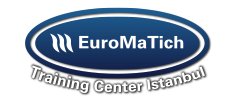Overview:
Introduction:
This training program provides participants with a comprehensive understanding of the principles, practices, and challenges in managing healthcare organizations. Through it, participants are equipped with the knowledge and skills necessary to navigate complex healthcare systems and drive organizational success in delivering quality care.
Program Objectives:
At the end of this program, participants will be able to:
- Demonstrate a comprehensive understanding of the roles and responsibilities involved in medication reminders, assistance, and administration within healthcare settings.
- Possess the necessary skills and knowledge required for safe and effective medication administration practices.
- Advocate for and implement strategies to ensure the safe administration of medications within the context of the current healthcare delivery system, considering economic factors, accessibility, and the overall health of the population.
Targeted Audience:
- Financial management in healthcare.
- Branding and customer relationship management.
- Health services administration.
Program Outlines:
Unit 1:
Foundations of Health Care Management and Administration:
- Introduction to Health Care Systems and Organizations.
- Roles and Responsibilities of Health Care Administrators.
- Healthcare Laws, Regulations, and Compliance.
- Healthcare Financing and Reimbursement Models.
- Ethical and Legal Considerations in Healthcare Management.
Unit 2:
Healthcare Leadership and Strategic Management:
- Principles of Effective Leadership in Healthcare Settings.
- Strategic Planning and Decision-Making Processes.
- Organizational Structure and Governance in Healthcare Institutions.
- Quality Improvement Initiatives and Patient Safety Measures.
- Change Management and Innovation in Healthcare Management.
Unit 3:
Healthcare Operations and Resource Management:
- Healthcare Facility Design and Workflow Optimization.
- Human Resources Management in Healthcare.
- Supply Chain Management and Inventory Control.
- Information Technology and Data Management in Healthcare.
- Budgeting, Financial Analysis, and Resource Allocation.
Unit 4:
Healthcare Policy, Advocacy, and Public Health:
- Understanding Healthcare Policy and Advocacy Processes.
- Health Policy Analysis and Development.
- Population Health Management and Disease Prevention.
- Healthcare Disparities and Social Determinants of Health.
- Public Health Initiatives and Community Engagement Strategies.
Unit 5:
Healthcare Quality, Performance Improvement, and Patient Experience:
- Principles of Healthcare Quality Assurance and Improvement.
- Performance Metrics and Benchmarking in Healthcare.
- Patient-Centered Care and Patient Experience Improvement.
- Risk Management and Patient Safety Strategies.
- Accreditation Standards and Continuous Quality Improvement Processes.


